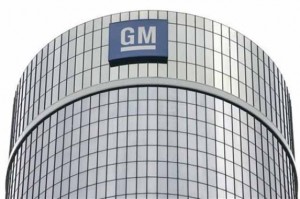Fitch Ratings has upgraded the debt ratings for General Motors Co. and its finance subsidiary General Motors Financial Company Inc.
GM debt was raised to investment grade last year, but the upgrade of GM’s ratings is supported by fundamental improvement in the company’s credit profile largely resulting from its work to improve product profitability while maintaining a relatively conservative balance sheet, according to the analysis by Fitch.
Raising the credit rating to investment grade has been one of GM’s goals since it emerged from bankruptcy in the summer of 2009.
Fitch said it expects the margin performance of GM’s key North American operations to remain strong relative to its rivals, while its aggressive efforts to restructure its global operations will drive further improvements in profitability and cash flow outside the U.S.
(GM vehicles top “most American” list for 2017. For the story, Click Here.)
The rating agency also expects GM “to maintain a relatively strong liquidity position sufficient to protect against a downturn while keeping leverage near the low end of its peers.” Concerns stemming from the ignition switch recall have largely abated, and Fitch expects any remaining recall-related cash costs to be manageable.
On the downside, however, credit risks include a slowing global auto market, including industry sales in the U.S. that Fitch expects to plateau at around 17 million units, and slower industry growth in China. The impact of slowing industry sales in the U.S. is exacerbated by higher industry price incentives, driven in part by a substantial increase in late-model off-lease vehicles hitting the used car market.
“Longer-term risks include expected changes in the global automotive technology landscape, including the advent of autonomous vehicles and regulatory-driven shifts toward increased vehicle electrification,” Fitch analysts said.
(Click Here for details on GM shareholders voting down the stock split proposal.)
In addition, there are a number of new competitors trying to establish a foothold in the evolving auto market. These shifts will create pressures that will add to the host of challenges faced by the highly cyclical global auto industry.
“Fitch believes GM is generally well positioned to navigate these challenges, but they nonetheless pose some longer-term downside risk to the company’s credit profile. GM’s ratings also incorporate the risk that growth at (GM Financial) and changes in the financial subsidiary’s leverage profile could put some pressure on the parent company,” the analysts wrote.
The upside to GM Financial is that its asset base continues growing with increased entry in prime lending and retail leasing. However, in the event of a significant sales slump, GM would be faced with some problems. Fitch expects that GM would likely experience a significant cash outflow due to its inherent operating leverage, working capital profile, and capital expenditure needs.
(GM’s Barra says climate change is real. To see more, Click Here.)
Fitch also expects that the company’s automotive net cash position of about $9 billion as of March 31, 2017, along with about $14 billion of automotive revolver availability, would provide it with sufficient financial flexibility to withstand a severe decline in demand.

